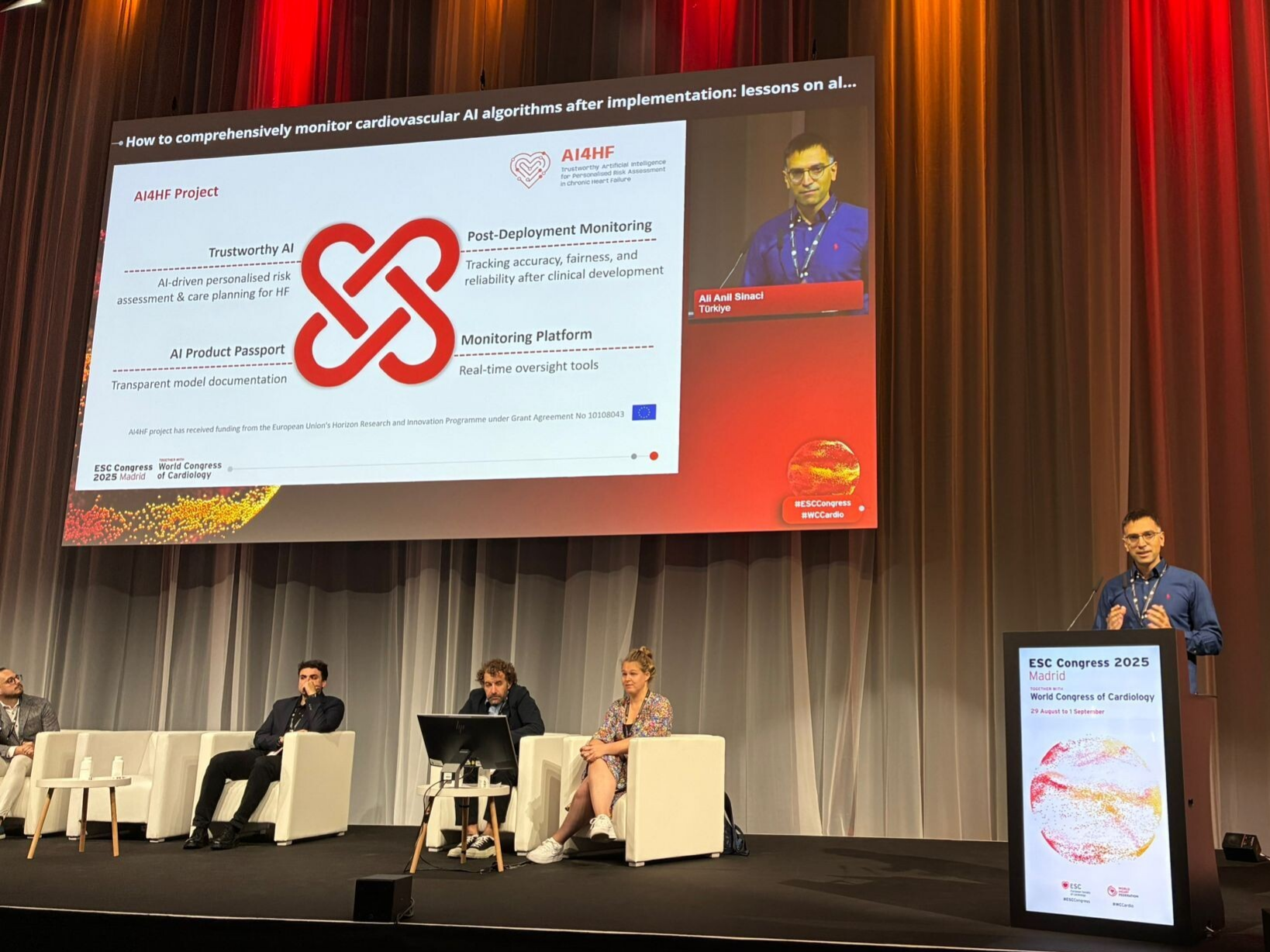
AI4HF at the Madrid ESC Congress 2025: Showcasing Innovation in AI for Personalised Cardiology

The ESC Congress 2025, held jointly with the World Congress of Cardiology in Madrid from 29 August to 1 September, brought together the global cardiology community, uniting knowledge, innovation, and expertise from every continent. This year’s Congress focused on Global Health, highlighting “cardiology without borders” and the evolving impact of cardiovascular disease on health systems worldwide.
Key discussions explored emerging challenges, new opportunities, and persistent health inequalities, while also shining a spotlight on advances in treatment, digitalisation, and strategies adaptable to diverse healthcare environments.
Against this vibrant backdrop, our project AI4HF proudly contributed to the scientific programme with a dedicated session that underscored the role of artificial intelligence (AI) in shaping the future of personalised medicine.
A Spotlight on AI and Cardiology
On the second day of the Congress, AI4HF took the stage in a Scientific Session organised together with two other Horizon Europe projects: DataTools4Heart and NextGen.
The session, entitled “Artificial intelligence tools to improve personalised medicine: a basic introduction for cardiologists with lessons learned from three EU projects”, was designed to bridge the gap between AI innovation and clinical practice. It was chaired by Dr Machteld Johanna Boonstra (Amsterdam UMC) and Dr Karim Lekadir (University of Barcelona). The panel brought together presentations from Dr Cristian Izquierdo Morcillo (University of Barcelona), Dr Ali Anil Sinaci (SRDC Software Corporation) and Dr Daniele Malpetti (SUPSI). Collectively, they demonstrated how AI-driven tools developed within these three Horizon Europe projects are supporting cardiologists by translating complex computational methods into practical clinical insights.
Bridging Innovation and Practice
The session showcased concrete examples where AI has the potential to enhance decision-making in the management of heart failure and other cardiovascular conditions. It also underlined the importance of usability and clinical validation in the development of such solutions, as well as the ongoing work to address ethical, transparency and data governance issues that are fundamental to building trust in medical AI.
Speakers emphasised that the success of AI in healthcare ultimately depends on multidisciplinary collaboration. Computer scientists, clinicians, ethicists and patients all need to contribute to the design and refinement of solutions to ensure they respond effectively to real-world clinical needs. The strong participation of the audience further enriched the exchange. Questions touched upon both ethical frameworks and technical challenges, demonstrating the growing relevance of AI in cardiology and the eagerness of practitioners to understand, adopt and integrate these innovations into clinical practice.
Looking Ahead
We are proud that AI4HF was able to contribute to this global exchange of knowledge at ESC Congress 2025, one of the world’s most influential cardiology events. Presenting alongside other EU-funded initiatives reinforced the value of collaboration within the Horizon Europe programme and illustrated how joint efforts are driving innovation in digital health and personalised medicine.
This opportunity not only enabled us to present the progress and results of AI4HF but also facilitated meaningful interaction with the wider cardiology and research community. We now look forward to future opportunities to share our advancements, strengthen collaborations, and contribute to the transformation of healthcare through AI-enabled solutions.


